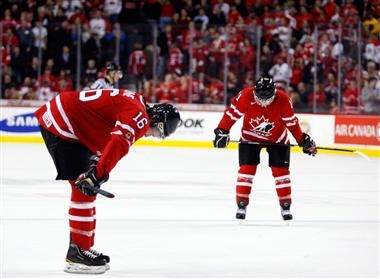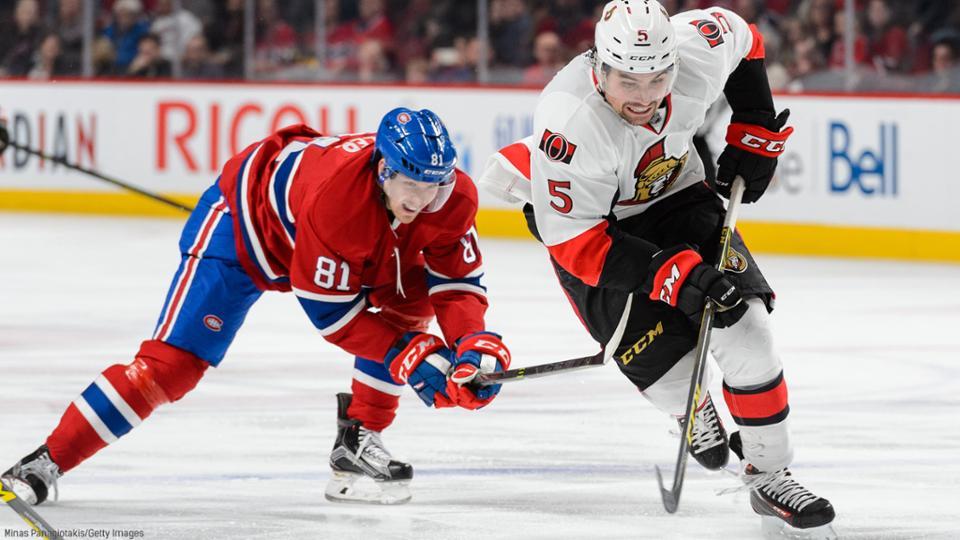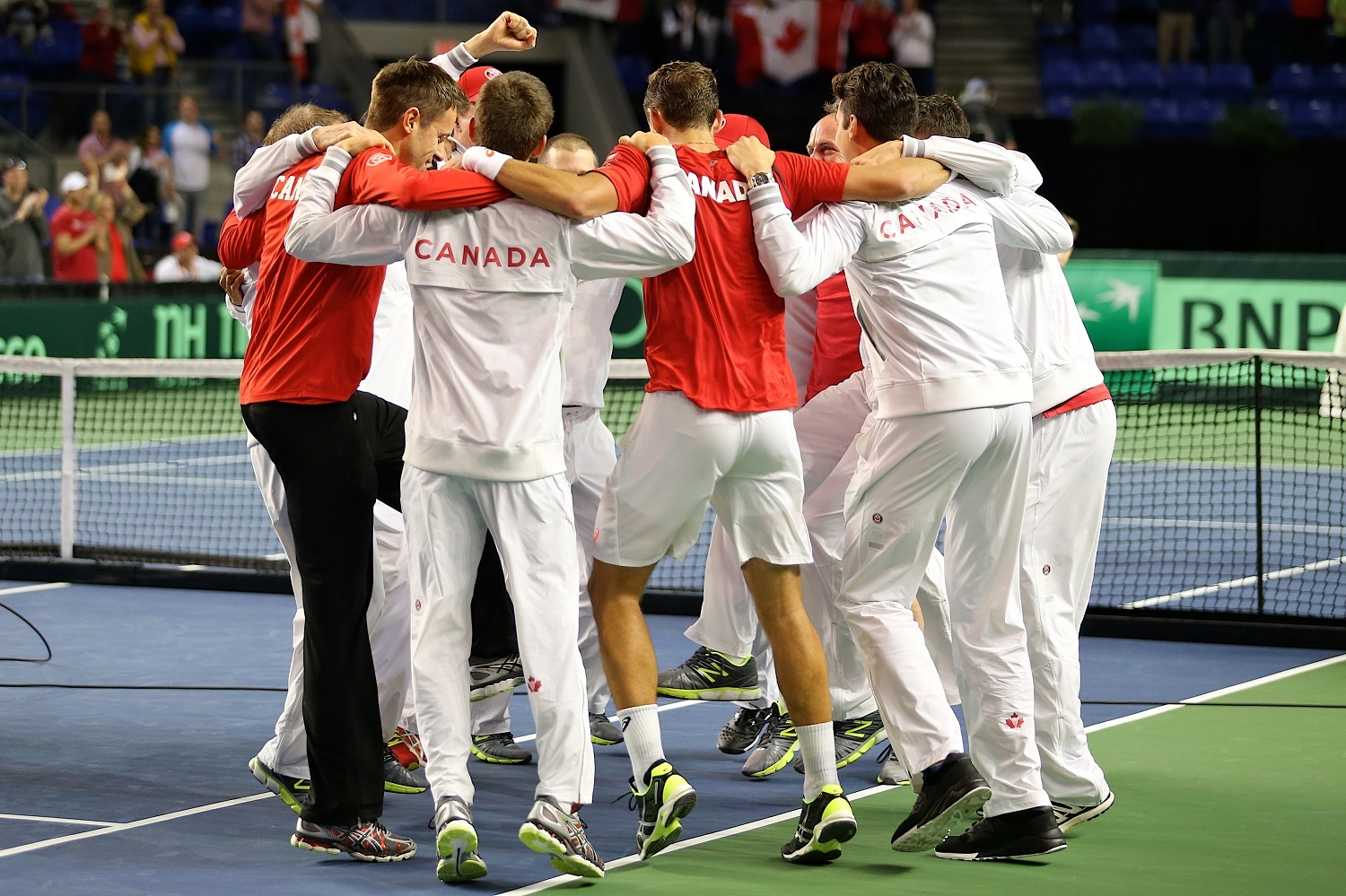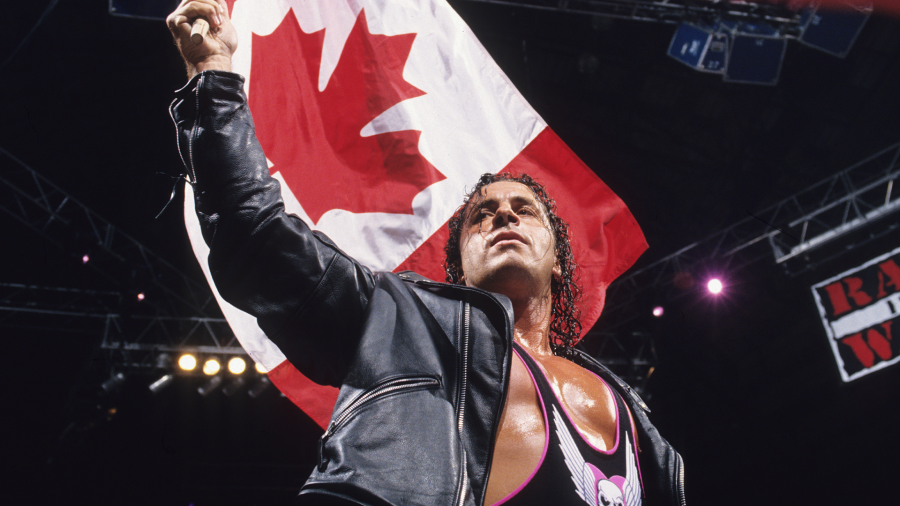
Russia 6, Canada 5
Two periods into Tuesday night’s World Junior semifinal, I had an entire article penned about Canada’s catastrophic loss to Russia, about the crossroads Hockey Canada now faced, about how the Russian development model had definitively eclipsed ours. Canada trailed 5-1 after 40 minutes, and Nikita Kucherov added a sixth goal eight minutes into the final frame. A full decade had passed since Canada last failed to reach the gold medal game of the World Junior Hockey Championships. Ten consecutive shots at the championship, and now disaster.
Then Dougie Hamilton tucked in a backdoor pass, and hope flickered. Jaden Schwartz banked a puck in off a Russian defender, and it looked like disaster may be averted. Brendan Gallagher tipped in a drifting shot, and the Russian development model began to teeter. Brandon Gormley ripped a bullet from the point, and Hockey Canada was back on track. Four minutes, fifty-seven seconds. Four goals.
It was the second-greatest comeback in the history of the World Juniors – the comeback that was never completed. The Canadians resembled Russia circa the 2011 goal medal game, rising from the dead, roaring back from an early deficit and turning the hockey world on its head. The Russians played the part of Canada ’11 too well, weathering a first-period storm, pouncing on defensive errors, erupting for an all-too comfortable lead. The lead was insurmountable for 49 minutes, vulnerable for five, unbearably thin for the final six and then insurmountable once again – this time, for good.
The game was played in a tidy two-and-a-half hours, though each passing minute seemed to elicit a different emotion – anticipation, anger, doubt, shock, depression, repulsion, resignation, disbelief, desire, silence. Despite the Russians’ temporarily decisive lead, the outcome could have turned on countless Canadian chances. 56 total shots rained down upon the Russian goal, with several rang posts and agonizing near-misses fortifying the post-game Canadian despair.
Lost in the flurry of the late Canadian charge was the yeoman’s effort put forth by 17-year old Andrei Vasilevski. A day after outlasting brilliant Czech netminder Petr Mrazek in the quarterfinals, Vasilevski stopped 44 shots, holding off the Canadian onslaught as his team chased Scott Wedgewood from the opposing goal. One stop in particular will go down among the greatest in the history of the tournament: Vasilevski’s stunning toe-save on Jonathan Huberdeau during a first-period power play, sending the puck skittering harmlessly above the goal and maintaining a one-goal Russian lead.
Vasilevski’s heroics lasted until the midpoint of the third period, when he finally fell victim to the Canadian siege. The stunning five-minute meltdown led Russian coach Valeri Bragin to yank Vasilevski and insert Saskatoon Blades starter Andrei Makarov into the game. Makarov faced Canada’s final seven shots, locking down the crease and absolving the eminently shaky Russian defense, whose struggles began long before Canada’s frantic comeback.
Though his team nearly offset last year’s gold medal victory with the mother of all collapses, Evegny Kuznetsov emerged as the hero for the Russians. The lone returning player from Russia’s 2011 championship team, the Washington Capitals prospect was held off the scoresheet in the first two round-robin games, before posting three goals and six assists in a 14-0 demolition of Latvia. Kuznetsov potted his second hat trick of the tournament in the semifinal, toying with the inexperienced Canadian defense and taunting the Calgary crowd after receiving his Player of the Game Award.
Canada’s valiant effort over the last 11 minutes doesn’t excuse the team for the dismal performance put forth through the first 49. 17-year old Ryan Murray had the unluckiest of games, with each of the first three Russian goals deflecting off of him and past Wedgewood. Fellow rearguard Nathan Beaulieu hooked down Kucherov at the Russian blue-line midway through the third period, failed to hustle back down ice and watched as Kucherov buried the eventual winning goal on the delayed penalty. Forward Boone Jenner took an elbow to the head near the end of the second, only to earn himself a five-minute major and a game misconduct for spearing Kuznetsov in retaliation. Huberdeau missed the first half of the third period after receiving a misconduct for slamming his stick into the boards.
Over the past decade, the Canadian junior team has found innumerable ways to win and lose games, with the three most recent tournaments leaning towards the latter. The gold medal loss to the Americans in 2010 stung, with an ill-timed Alex Pietrangelo pinch in overtime leading to an odd-man rush and an end to Canada’s streak of five World Junior championships. Last year’s collapse against Russia was a devastating blow to a country and team that thought they had secured gold once again. Tuesday’s loss began as the country’s most disastrous showing in the history of the tournament, turned into an inspiring display of Canadian heart and determination and ended with a demoralizing reminder of the two periods left un-played.
Games like these make it impossible and perhaps impractical to identify what truly befell Canada. When the score was 6-1, blame could be cast upon the forwards for failing to step up – that is, until they potted four goals in the frenetic third period. The lack of an elite goaltender, one on par with the likes of Mrazek and Vasilevski, will continue to be a prevalent explanation, though neither Wedgewood nor replacement Mark Visentin could be blamed for Canada’s troubles on Tuesday. The inexperienced defensive corps is the most likely scapegoat, though their miscues would have been forgotten had Canada mustered just one more goal in the dying minutes.
Sometime during Tuesday’s broadcast, when a Russian blowout appeared inevitable, TSN’s Gord Miller noted that so much had to go right for Canada to reach 10 consecutive gold medal games. Jonathan Toews had to score three shootout goals against the USA in 2007. Jordan Eberle had to strike with five seconds left against the Russians in 2009. Canada had to repel international hockey’s constantly fluctuating hierarchy and prove themselves to be one of the two best junior hockey teams in the world 10 straight times. In a tournament with five or six teams capable of reaching the podium every year, the bounces are bound to even out.
Maybe that’s the only explanation for Calgary and Buffalo and Saskatoon. The past three years, the bounces have evened out. One Andrei Vasilevski misstep or Ryan Murray blocked shot, and Canada might be playing for gold. One key save from Jake Allan and Mark Visentin in 2010 and 2011, and Canada might be playing for their eighth straight gold. No ill-timed icing from Dmitri Klopov, and Canada’s championship streak may have ended in 2009. Gold is perfection, silver is heartbreak, bronze is disaster, and the difference between each is a single rotation of the puck.
For 49 minutes on Tuesday night, everything went wrong for Canada, and the events of the next 11 weren’t enough to put Russia away. The hockey world will revel in Canada’s failure, and the Russians will face Sweden for the gold medal. In exactly one year, Canada will enter the medal round in Ufa, Russia, facing the same questions and the same pressure to top their greatest hockey rival.
On Tuesday night, they started too late. Four minutes, fifty-seven seconds, four goals. The Calgary crowd rose as one, growing louder with every missed chance, knowing the final goal would come. And then the game was over.
















